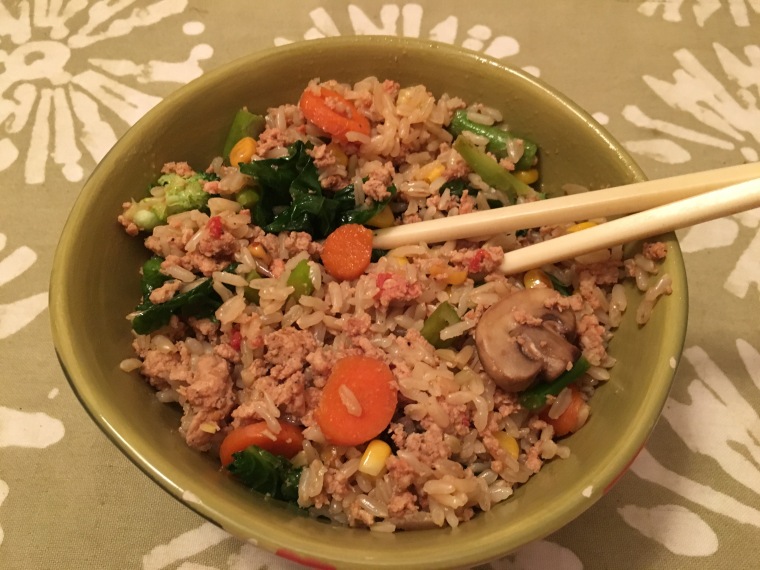I was once one of those people who needed to eat every few hours. If I didn’t, I would feel suddenly weak and dizzy, as if I were an iphone whose battery precipitously dropped from 83% to 2%. Mid-workout, I would grab an energy bar to power up again. In my worst moments, I would become shaky and sweaty, like someone detoxing from alcohol. It wasn’t a pretty picture. I eventually stumbled upon the term “hypoglycemia” and determined that I simply needed to eat more frequently.
It never occurred to me to look closely at what exactly I was eating. What was the composition of my diet exactly and could it have been a factor in my condition? In the 1930s, Dr. Weston A. Price, a dentist and a researcher, became curious about what contributed to good health. Thankfully, he did carefully examine and compare various diets to determine the factors at play in the best diets. He looked at the nutritional content of traditional foods and compared it with the so-called modern foods of his time (those sold at shops and comprised of refined flours, sugars, etc.) He found that traditional diets had 4x the minerals and water-soluble vitamins and 10x the fat-soluble vitamins A, D, and K. The bottom line? Modern diets often were (and still are) woefully inadequate in critical nutrients.
Whether we currently have any health concerns or not, it’s clearly time to ask ourselves some important questions, starting with: what the heck are we eating?! Are we simply satisfying our hunger with whatever happens to be close to our “pie hole,” or are we looking to build our bodies in better ways? I don’t mean “build” in a muscle-building fat-burning machine way, although some may have that goal. I mean, are we giving our bodies the fuel they need to thrive? Better nutrition translates into more energy, less fatigue. There’s easier brain function/more brain power, greater ease of movement/strength to take on physical tasks. Do you want this for yourself, for your family? Who doesn’t, right?!

Sally Fallon Morell takes Dr. Price’s findings and helps us figure out how to apply them in the day-to-day. She seriously sheds light on how to get the biggest bang for your buck out of every bite. (I may be mixing metaphors here, but you get what I’m saying!) Click here to listen to episode #30 entitled “Nutrient density.” In it, Sally touches on:
– how even those who think they’re eating “healthy” may still not be getting all of the vitamins and minerals they need
– the foods that offer the fat-soluble vitamins that are critical for our brain and body function (in organ meats, fish eggs, egg yolks, cheese, for example)
– the symptoms of fat-soluble vitamin-deficiency (including depression and anxiety)
– the dangers of a diet high in lean proteins (without sufficient fat)
– the fats that are implicated in heart disease (hint: not the saturated fats)
– how vitamins A, D, and K are a triumvirate: how they work together and should be in balance
– why she questions the USDA’s definition of “nutrient density” (Hint: they call vegetables nutrient dense, but they count it per calorie, and many vegetables are low in calories. This means that you’d have to eat copious amounts of broccoli, for example, to get the same amount of vitamins or minerals you’d get from a spoonful of liver.)
– how Dr. Price, through improved nutrition, improved the health and behavior of some orphans
– how to tweak your diet to improve not only your physical health but your mental health; how to increase optimism
– the one simple thing you can do to make a noticeable difference in your health, even if you do nothing else
I’m convinced that nutrient density (principle #3) is key to wellness. (For the entire list of “characteristics of traditional diets” click here.) I’ve been tweaking my diet over the years to align with the Wise Traditions diet and guess what?! All symptoms of hypoglycemia have resolved. Better still, I have no serious health concerns. I have sustained energy for the physical and mental tasks I want to complete. My body and mind feel strong and good.
What about you? Are you willing to try some of the foods rich in fat-soluble vitamins? What can you add to your diet to help your body thrive? Please comment below if you take even one small step in the nutrient-dense direction. I’m eager to hear what difference it makes for you!
***
Hilda Labrada Gore is a health coach and the host of the Wise Traditions podcast (found on iTunes, Stitcher and at westonaprice.org). She is also the DC chapter leader for the Weston A. Price Foundation.
